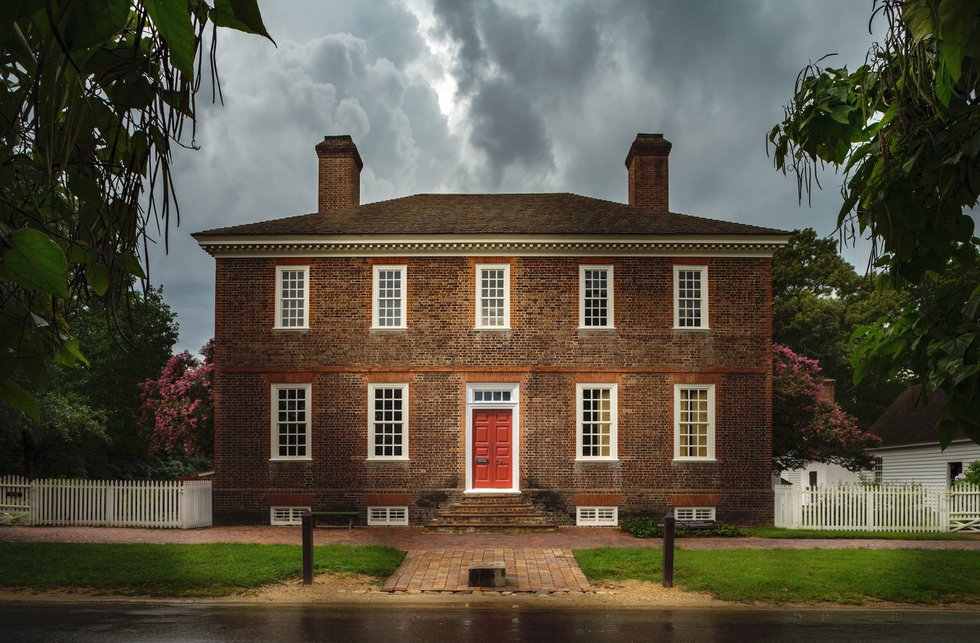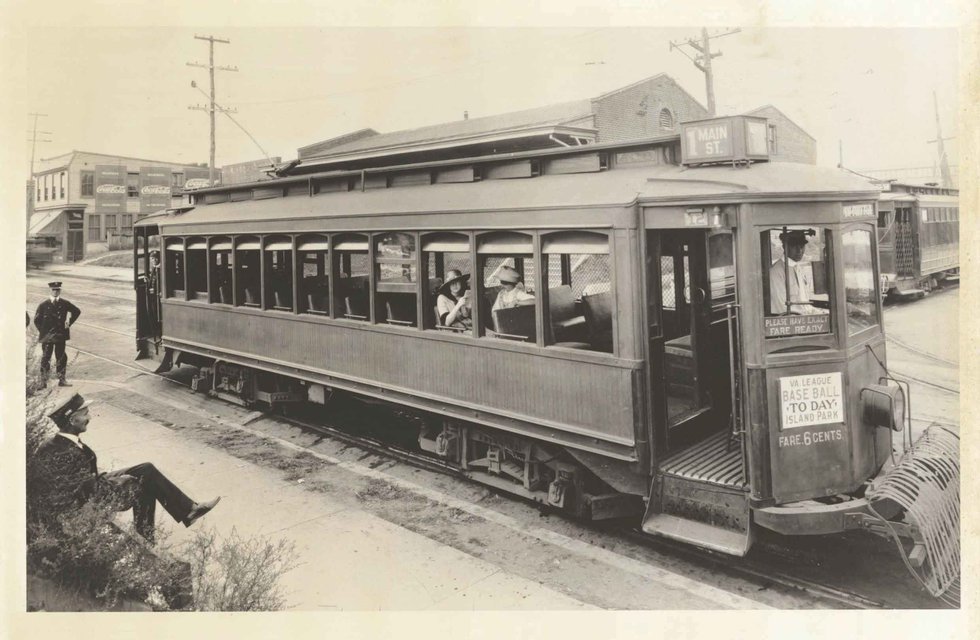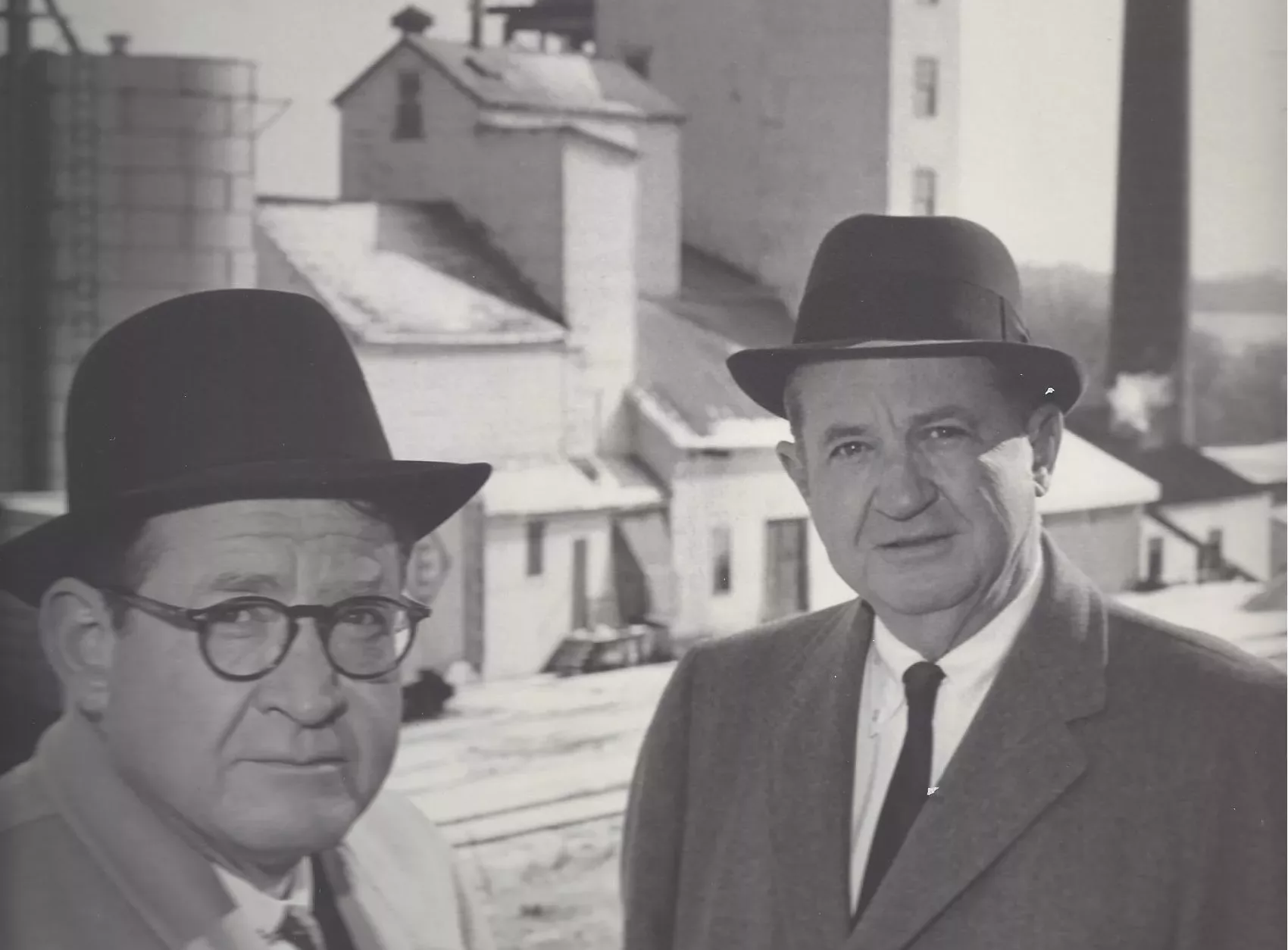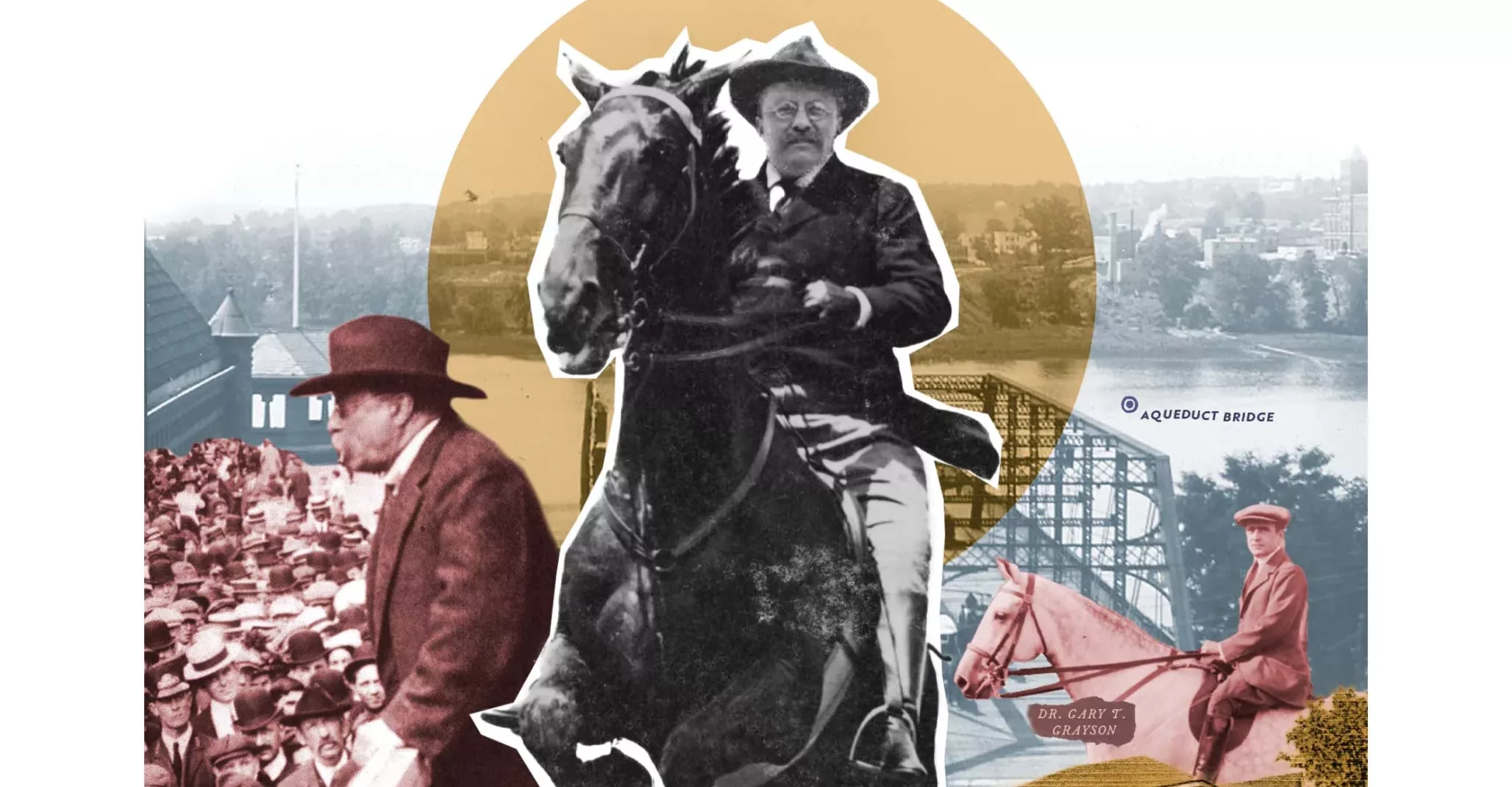Imagine yourself to be Howard Esten, captain of the good ship Virginia. The date is Nov. 4, 1774. Your ship departed Britain weeks ago, crossing the treacherous Atlantic. Now, Yorktown harbor—Thomas Jefferson would later claim it was Virginia’s best for large ships—lies invitingly ahead. Well-deserved time ashore awaits you and your crew. What could go amiss now?
Plenty, as it turned out. For the kindling of rebellion laid at last year’s Boston Tea Party had begun to smolder.
“The genie of the revolution was already out of the bottle by November 1774,” says Robyn Schroeder, Ph.D., assistant director of the National Institute of American History & Democracy at William & Mary. “And with it came the formation of an entirely new legal structure.”
But given how fast news travels in the 18th century, you, Capt. Esten, know nothing about the Continental Association’s recent ban on the importation of British goods. Or the copycat tea parties occurring in ports from Maine to South Carolina.
In Philadelphia, Capt. Ayres of the ship Polly is threatened with tar-and-feathering should his ship unload its cargo of tea. While a crowd of 8,000 belligerents awaits his answer, Ayres rows back to the Polly. The next day, it was Anchors aweigh, my boys, anchors aweigh.
In New York, the ship Nancy arrives with 600 chests of tea and leaves with 600 chests of tea. But not before the ship London arrives and her captain denies she carries any tea. A disbelieving crowd boards the London, discovers 18 chests of the maligned leaves, and dumps them overboard. That night, the ship’s frightened captain in effect issues a personal abandon-ship order, stowing-and-stealing away on the weighing-anchor Nancy.
In Annapolis, the Peggy Stewart docks with a cargo of tea and indentured servants, none of whom can disembark until the tea tax is paid. One of the ship’s co-owners pays the tax. The servants leave the ship; the tea leaves stay aboard. What should be done with it, the co-owner asks? Burn it, the townspeople say—and burn your ship, too. The Peggy Stewart went up in flames.
A Virginia port only needs the arrival of tea to join the party. Fittingly, it’s the ship Virginia that obliges. Tucked in her hole are two half-chests of tea for a Williamsburg merchant. Capt. Esten registers the cargo manifest with authorities. Word gets out. There’s damnable tea aboard her! Yorktown’s Committee for Safety gears up for action. On the morning of Monday the 7th, its members storm board the Virginia.
And then? Then they stood around and did pretty much nothing.
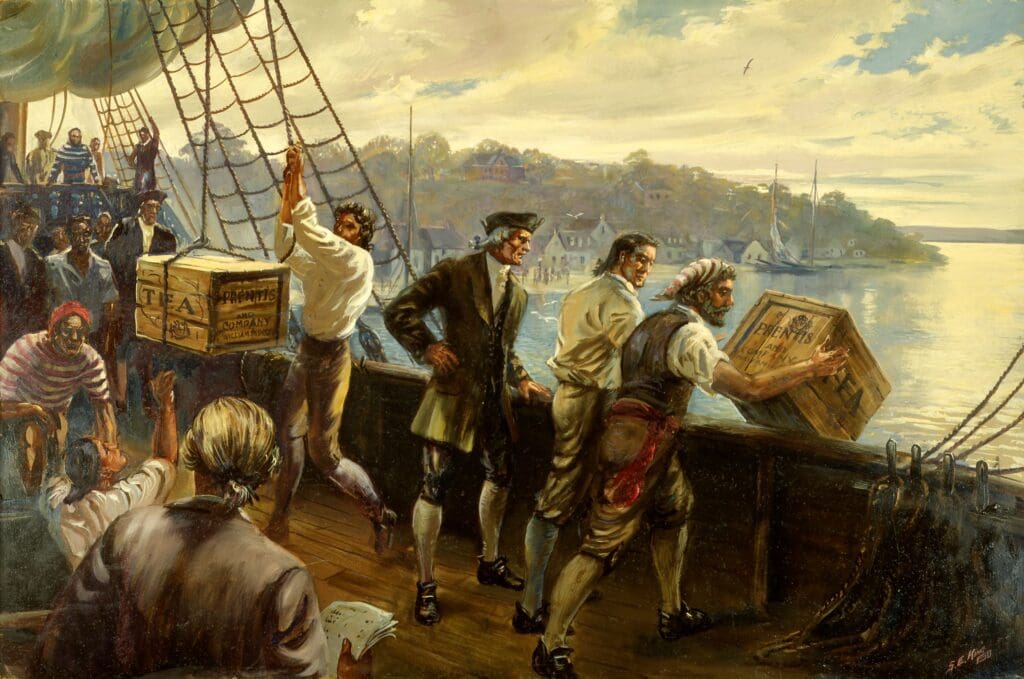
What would their representatives in the House of Burgesses in Williamsburg, where a meeting was underway about the tea, have them do? And so these polite, patient patriots waited. Did the crew of the Virginia offer their visitors refreshments to help pass the time? We suspect not.
After several hours, with no answer from Williamsburg forthcoming and patience worn thin, the Yorktown men hoisted the two half-chests of tea out of the hole, swung them over the ship’s gunwale, and let them drop. Did the chests float a while? Did they immediately disappear en route to the muddy bottom of the York River? No account was recorded. And that was that.
What happened next? Ink and indignation flew liberally. The nearby Gloucester Committee for Safety issued a number of resolutions condemning the English merchants, their colonial representatives, as well as the Williamsburg merchant. Capt. Esten and the Virginia were given 20 days to vacate local waters. The Williamsburg merchant immediately fell
on his sword via a letter of unreserved apology. Months later, a similar letter arrived from the London merchants.
Compared to the splashes of 342 full-size chests in Boston Harbor, each weighing north of 350 pounds, the Yorktown Tea Party’s two half-chests were but a ripple. But news of it hardened patriotic support throughout the
Colony of Virginia.
“1774 was a crazy year in Virginia history,” Schroeder adds.
True, professor. But a good year, too.
This article originally appeared in the August 2024 issue.







